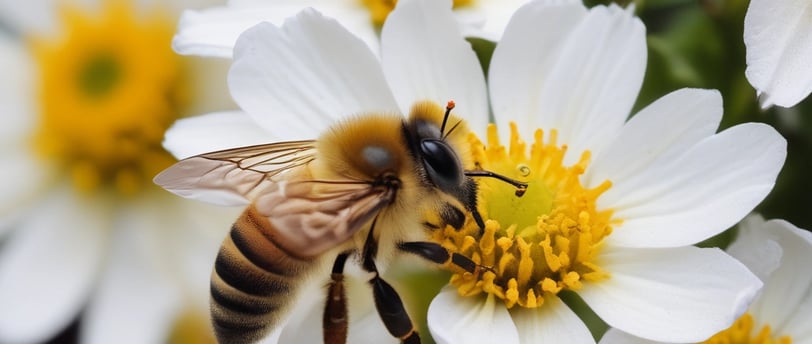Think delicious, healthy teas, handmade crafts, and amazing products made with herbs and organic ingredients straight from the farm. We're all about natural living and wholesome goodness
The Buzz About Honeybees: Nature's Tiny Heroes
4/7/20252 min read


Introduction to Honeybees
Hey there, fellow nature enthusiasts! Today, we're diving into the fascinating world of honeybees. These tiny creatures are often seen buzzing around gardens and farms, but they offer far more than just sweet honey. In fact, honeybees are an essential part of our ecosystem, acting as pollinators that sustain the health of the planet. Let's explore the remarkable benefits they provide and why they're so crucial to our lives.
The Pollination Powerhouse
To start, we must recognize honeybees as pollination powerhouses. As they flit from flower to flower, collecting nectar and pollen, they unknowingly assist plants in their reproductive processes. By transferring pollen grains, honeybees help facilitate the fertilization of a vast majority of flowering plants. This activity is particularly vital for a plethora of fruits, vegetables, and nuts that we rely on in our diets. Imagine a world without apples, almonds, or tomatoes—yikes! Without honeybees performing their pollination duties, our agricultural landscape would face significant changes, leading to potential food shortages.
The Ripple Effects of Honeybee Decline
But wait, there’s more! While honeybees help us, they are also keystone species for countless other living organisms. The decline of honeybee populations poses threats to entire ecosystems. Many animals depend on the plants they pollinate for food and habitat. Additionally, fewer flowering plants can lead to reduced biodiversity, affecting not just the bees, but other pollinators and wildlife as well. The connection between honeybees, plants, and wildlife illustrates a delicate balance that maintains environmental health.
How We Can Help
So, what can we do to protect these buzzing wonders? There are several proactive steps to take. Firstly, consider planting a diverse range of flowers that bloom at different times throughout the seasons. By providing a continuous food source, you’re helping honeybees thrive. Furthermore, avoid using harmful pesticides that can negatively impact these important pollinators. Local beekeeping organizations and community gardens are also great avenues to support bee populations and learn more about these fascinating insects.
Final Thoughts
In conclusion, honeybees are much more than just honey producers; they are a vital part of our ecosystem. By playing their critical role in pollination, they help sustain our food systems and biodiversity. As we gain a better understanding of their importance, let’s commit to protecting these tiny heroes. After all, their buzz is critical not just for our plates but for the health of the planet!






